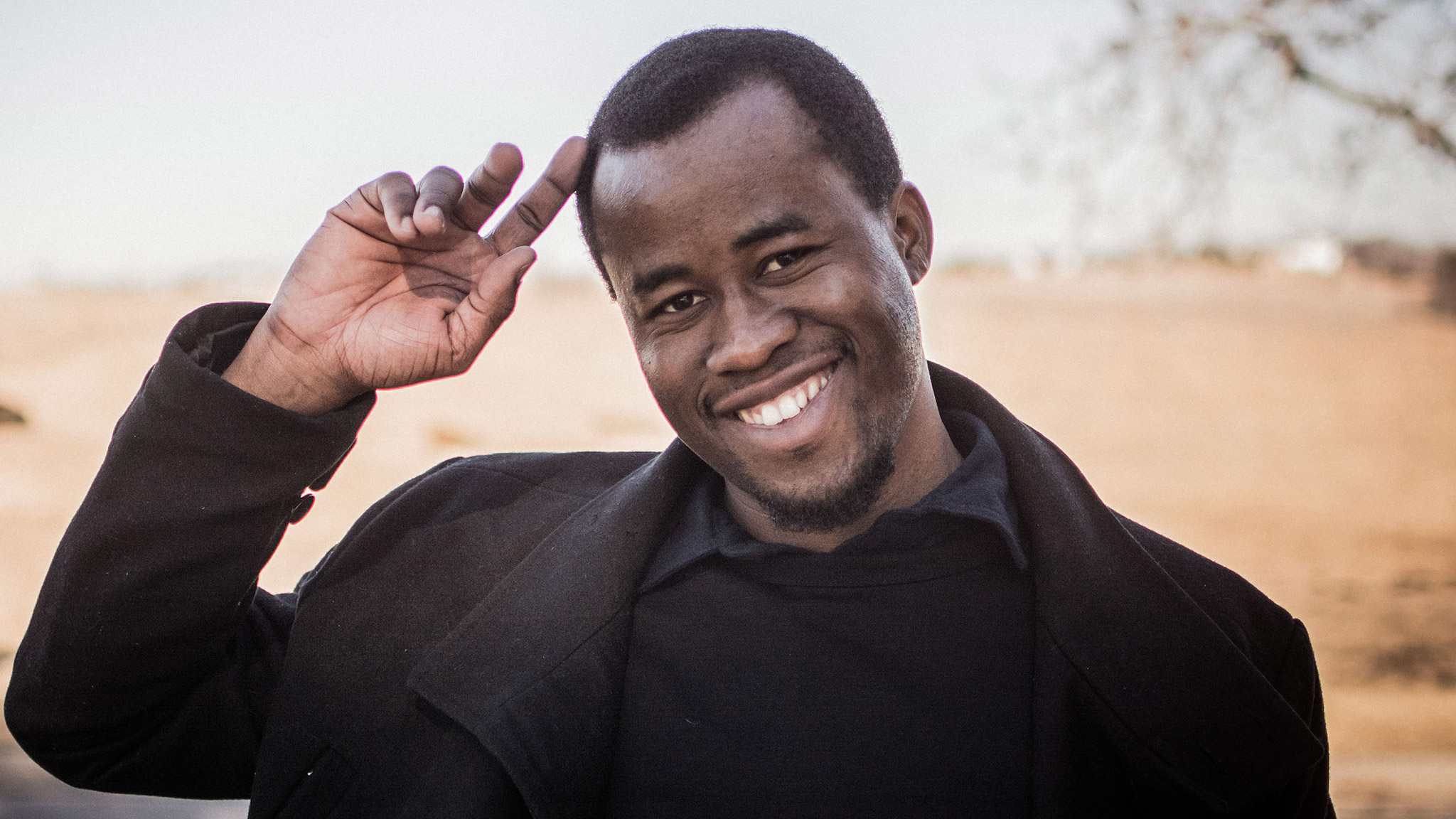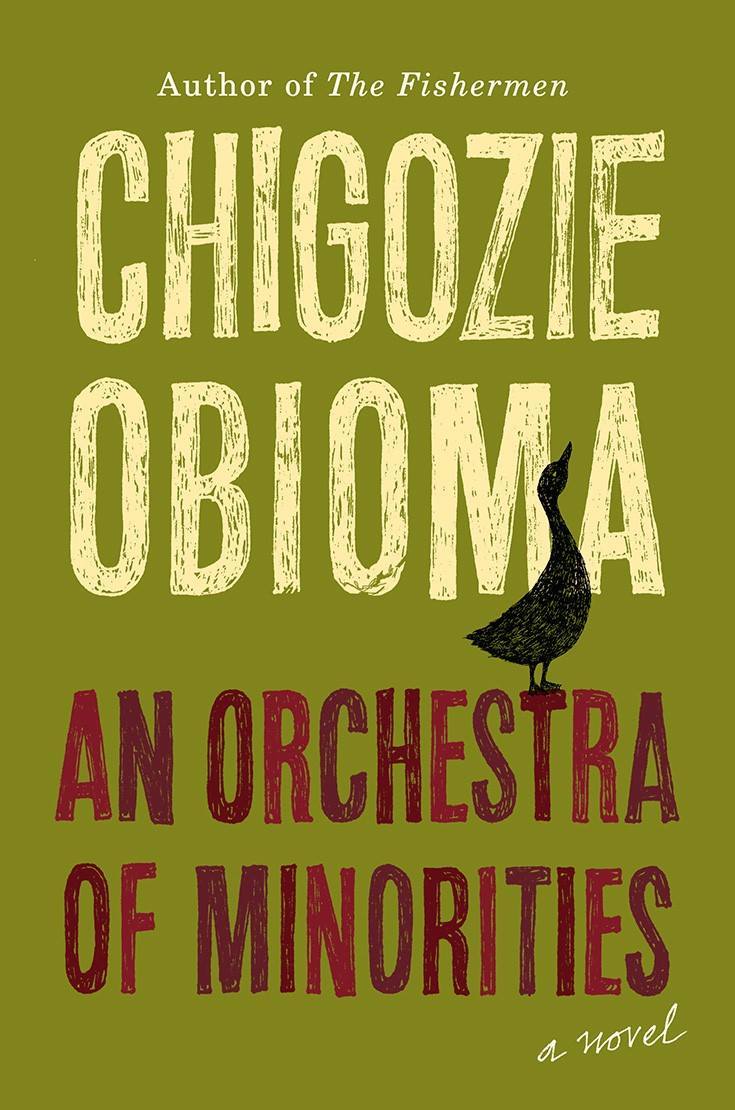Birds of a Feather
With his second novel Chigozie Obioma proves that the African folk tale can expand to embrace contemporary subjects, even while remaining true to its cultural roots. At the same time, he illustrates how the traditional realistic western novel may be perfectly adapted to Igbo cosmology, in which human beings are just one of many equal competing forces in a spiritually complex universe. It goes without saying, of course, that these tricks are not for kids and that only a master of literary form could manage to pull them off.
Obioma’s first novel “The Fisherman’’ tells a biblically-infused tale of four young brothers whose relationships deteriorate after their father leaves home. This eloquent meditation on the dangers of Western values thrust onto Nigerian politics and culture was a Man Booker finalist. Even so it does not half prepare readers for the stylistic virtuosity of “An Orchestra of Minorities.’’ The title refers to the cry of chickens when they are frightened or aggrieved by powers beyond them, an expression that finds its human equivalent in Edvard Munch’s “The Scream.”
As the folk tale-like story opens we meet Chinonso Solomon Olisa, a 24-year-old Nigerian poultry farmer, deep in mourning for his late father. As time passes, Chinonso begins again to care for his flock. Sometimes he even steps out to visit a friend.
One night, while crossing a bridge, he witnesses a woman preparing to jump. He races from his car and manages to talk her down. Some months later, after their paths cross again, he and the woman, Ndali, fall in love. But her wealthy westernized family rejects the poultry farmer.
Desperate to marry Ndali, Chinonso decides to sell everything he owns — his house, his land, and his business — for a university education. He enrolls at a school in Cyprus. But upon arrival, he learns he has been scammed out of his funds. Destitute, stranded abroad, devastated by a second more brutal betrayal, Chinonso twists into a bitter man with dark consequences
The story’s folk element derives in part from Obioma’s use of diction. Here is an example from a scene in which Chinonso returns from market.
“[H]e recorded in his big foolscap notebook that he’d bought eight adult fowls — two roosters and six hens — a bag of millet, a half bag of broiler feed, and a nylon full of fried termites. He’d paid twice the usual price of chickens for one, a wool-white rooster with a long tapering comb and plush of feathers. When the seller handed him the fowl, tears clouded his eyes.’’
Obioma’s choice of narrator enhances the work’s timeless quality. The story is told by Chinonso’s chi or guardian spirit, which has inhabited our hero from the day of his birth. Through this medium we learn of Chinonso’s Christ-like character (he is a born saviour), his sensitive temperament, his work ethic, and his naïve tendency to trust. The chi occasionally departs Chinonso’s body to testify to the gods or move through the realm of grotesque spirits existing parallel to Earth. The Igbo cosmology, which Obioma diagrams early in the book, is an authentic aspect of this world.
The guardian spirit supplies historical context, for he is a reincarnated being and has inhabited many lives, including a soldier in the Biafran war, a scholar of British literature, and a man captured by Aro slave traders and sold “in that land of the brutal White Man.’”
In Chinonso’s Igbo world “the White Man” is largely an abstraction, weighty and invisible. We hear of “the White Man’s education” and “the White Man’s idea about time” and especially “the White Man’s language.” Although Chinonso lives and works entirely among Igbo people, the ability to speak English nevertheless denotes education and confers status. Indeed, it is Chinonso’s unease with the language that serves as a class marker to Ndali’s disapproving father.
Throughout the novel Obioma subtly addresses the insidious vestigial elements of colonialism. But he is equally interested in what Nigerians have abandoned: The wisdom of their ancestors, for example, in exchange for a western-based education that benefits few. As his guardian spirit bemoans:
“Like most people of his generation [Chinonso] knew nothing of the education of his people, the Igbo, the civilization of the erudite fathers.’’
It is only after Chinonso begins to compare himself unfavourably to Ndali’s family’s foreign accomplishments that he feels inferior, powerless, and full of shame. Chinonso’s experience may well be an allegory for a nation.
Throughout this novel, Obioma evokes ancient African proverbs to elaborate upon Chinonso’s increasingly dire predicaments. Woven together as philosophical musings, they form the fabric of the narrative as do similar observations in a George Eliot story. In “An Orchestra of Minorities,’’ Obioma deploys whatever literary means necessary to retrieve the precious African knowledge that has been lost. It is more than a superb and tragic novel; it’s a historical treasure.
This piece previously appeared in The Boston Globe.





